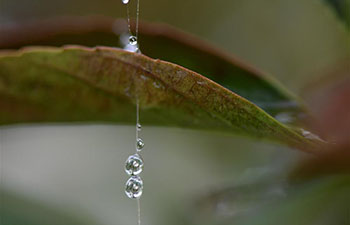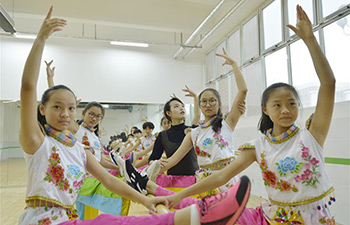DAR ES SALAAM, Oct. 8 (Xinhua) -- The government of Tanzania has urged member states of the East African Community (EAC) to control the manufacturing and smuggling of sub-standard and counterfeit medical products, a statement by the Information Services said on Sunday.
Mpoki Ulisubisya, the Permanent Secretary Ministry of Health, Community Development, Gender, Elderly and Children, urged the EAC member states to adopt laws that will be harmonized in the region to allow for cross-border control of counterfeit medical products as perpetrators did not distinguish borders.
"Concerted efforts are needed to curb clandestine manufacturing and smuggling of falsified medical products that end-up to users," the statement quoted Ulisubisya as saying.
He said if sub-standard and counterfeit medical products found their way into the regional market, people could fall victims and could end up in hospitals with devastating health problems.
Ulisubisya told the 10th Steering Committee Meeting of the EAC Medical Regulatory Harmonization Program in Dar es Salaam that collective efforts were needed to ensure the region was free from sub-standard and counterfeit medical products.
He told committee members who comprised of chief pharmacists from EAC partner states and heads of national medicines regulatory authorities in the region that the institutions they were leading were very crucial in protecting and promoting public health in the region.
"These institutions provide a rate-limiting step in any healthcare system to halt poor quality, unsafe and ineffective medical products from reaching our markets," he said.
He said the EAC member states of Tanzania, Kenya, Uganda, Rwanda, Burundi and South Sudan have set a target that by the end of this year all medicines and medical equipment entering into any member state must be of the same quality as per agreed regulations by the region.
Ulisubisya said the EAC Medicine Harmonization Program under review which began in 2012 has recorded good results as it has managed to put in place harmonization systems, setting up guidelines and procedures.
He appreciated the technical and financial support offered to the program by various partners including World Health Organization, the Bill and Melinda Gates Foundation, the Swiss Development Cooperation, the United Kingdom's Department for International Development and the World Bank.

















